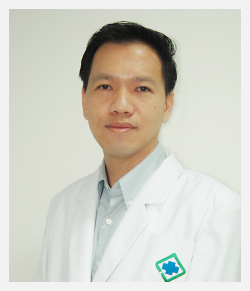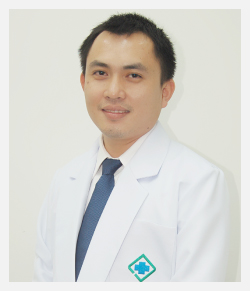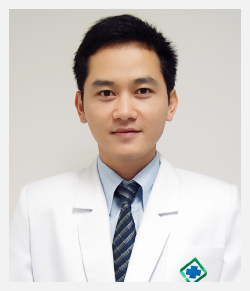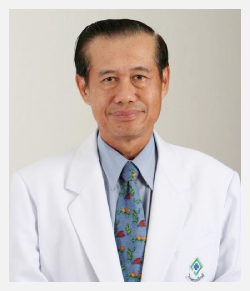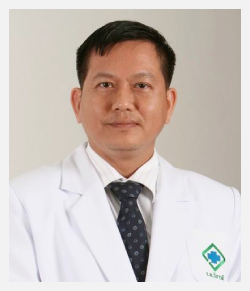Travel Medicine

Key Takeaways
-
Travel Medicine focuses on protecting the health of individuals traveling internationally by preventing diseases such as malaria and yellow fever, offering vaccinations, medication guidance, and travel health advice.
-
Who Should See a Travel Medicine Physician: Travelers to areas with infectious disease risks, people with chronic conditions, children, the elderly, and pregnant women should consult specialists for personalized guidance.
-
Preparation is Key: Visit a Travel Medicine clinic at least 4–6 weeks before departure for health checks, vaccinations, personal medication planning, and advice on disease and accident prevention.
Why Health Checks are Essential Before Traveling
Before traveling abroad for tourism, study, or work, checking your health is essential. Some destinations may pose risks from endemic diseases or have unexpected health requirements. Vibhavadi Hospital’s Travel Medicine services help prepare travelers to stay healthy, safe, and confident every step of the way.
What is Travel Medicine?
Travel Medicine is a medical specialty focused on the health and safety of individuals traveling internationally or to areas with health risks. It encompasses:
-
Pre-travel risk assessment
-
Vaccination recommendations
-
Infection prevention guidance
-
Management of potential health issues during travel
-
Post-travel recovery guidance
The goal is to ensure travelers maintain good health, avoid preventable diseases, and enjoy their journeys safely.
The Importance of Travel Medicine
Travel Medicine reduces health risks associated with travel, including:
-
Infectious diseases from local food, water, or insect exposure
-
Accidents or injuries during travel
-
Environmental changes such as climate, altitude, or sanitation differences
Travel clinics provide advice on vaccinations, prophylactic medications, and preventive behaviors. This allows travelers to minimize the risk of illness or emergencies while traveling safely and confidently.
Who Should Consult a Travel Medicine Physician?
Travel Medicine services are recommended for:
-
International travelers for tourism, work, or family visits
-
Travelers to high-risk regions with endemic diseases or challenging environments
-
Individuals with chronic conditions, such as diabetes, hypertension, heart disease, or immunodeficiencies
-
Vulnerable populations, including children, the elderly, and pregnant women
-
Long-term travelers for study, work, or residence abroad
Common Travel-Related Health Risks
Infectious Diseases
Travelers may encounter infectious diseases from contaminated food, water, or insects, including:
-
Traveler’s diarrhea caused by bacteria
-
Hepatitis A and B
-
Dengue fever and malaria
-
Respiratory infections such as influenza
Prevention includes vaccinations, safe food and water practices, and insect avoidance strategies.
Environmental and Climate-Related Conditions
Changes in environment, climate, or altitude can cause:
-
Heat-related illnesses like heat exhaustion or heat stroke in hot, humid climates
-
Altitude sickness in high-altitude areas
-
Skin conditions and other climate-related health issues
-
Accidents from outdoor activities or challenging terrain
Preparing for these risks in advance can reduce illness and accidents, ensuring a safer journey.
How to Prepare Before Traveling
Health Assessment and Risk Evaluation
A pre-travel health check evaluates your current health status, chronic conditions, medication allergies, and destination-specific risks. This allows physicians to provide personalized preventive recommendations.
Vaccinations Before Travel
Vaccines are essential to prevent infectious diseases, especially in areas with endemic conditions. Common vaccines include:
-
Hepatitis A and B
-
Yellow fever
-
Typhoid
-
Malaria prophylaxis (where applicable)
Receiving vaccines in advance helps build immunity and prevents severe illness during travel.
Travel Medications
Prepare medications for both chronic conditions and common travel health issues such as:
-
Headaches, fever, or diarrhea
-
Insect bites and allergies
-
Basic first-aid supplies
Physicians can advise on dosage, timing, and use according to travel duration and destination.
Travel Medicine Services at Vibhavadi Hospital
Vibhavadi Hospital provides a comprehensive Travel Clinic offering:
-
Health screenings and pre-travel assessments
-
Risk evaluations for infectious diseases and environmental conditions
-
Vaccination and medication recommendations tailored to individual needs
-
Guidance on safe travel behaviors and preventive measures
Travelers receive personalized consultation to ensure a safe, healthy, and enjoyable journey.
Limitations
Some services, including certain vaccines (e.g., yellow fever), may not always be available. Travelers should inquire before their visit.
Summary
Travel Medicine is the key to worry-free international travel. By evaluating health risks, providing vaccinations, and preparing medications, travelers—especially those with chronic conditions, children, elderly, pregnant women, and long-term travelers—can reduce health risks and travel with confidence.
Vibhavadi Hospital offers comprehensive Travel Medicine services, including health checks, risk assessments, vaccination and medication planning, and preventive guidance. These services ensure travelers are healthy, safe, and able to fully enjoy their journeys.
Frequently Asked Questions (FAQ)
Can people with chronic conditions travel safely?
Yes, but they should consult a Travel Medicine physician in advance, ensure they have enough medication, and follow destination-specific precautions.
What should I do if I get sick while traveling?
Have information about local doctors and hospitals, carry emergency medications, and seek immediate medical care if symptoms are severe. Embassies can also assist in emergencies.
I don’t have time to see a Travel Medicine doctor—what can I do?
Check trusted online sources for vaccine and health recommendations, prepare basic medications and first-aid supplies, and plan for emergencies during travel.
Testimonials
Proud to take care of you





